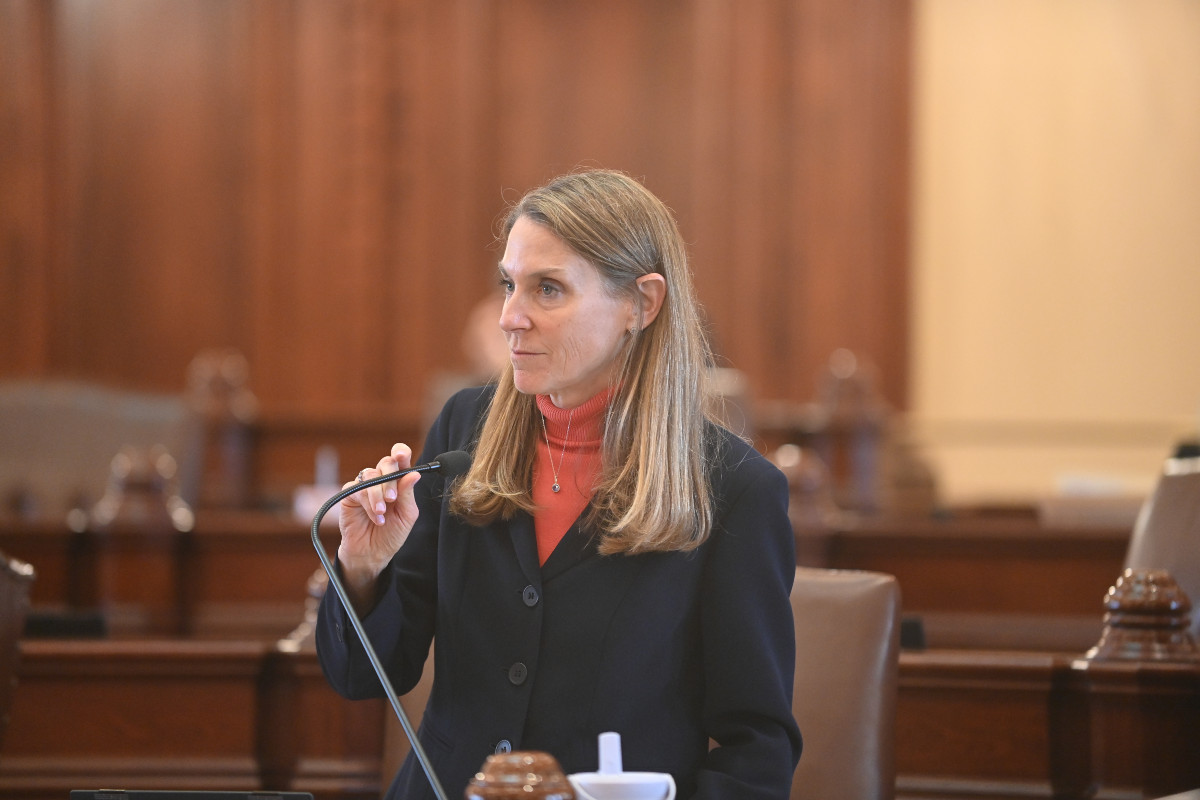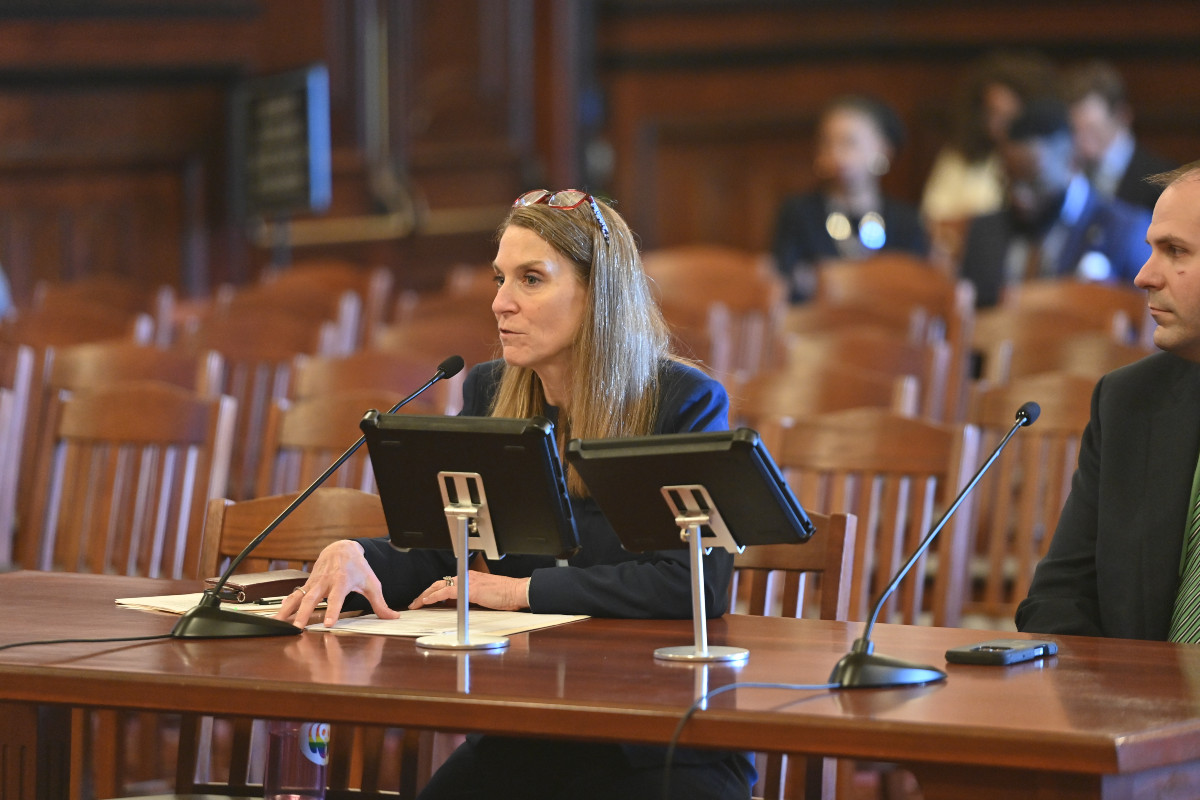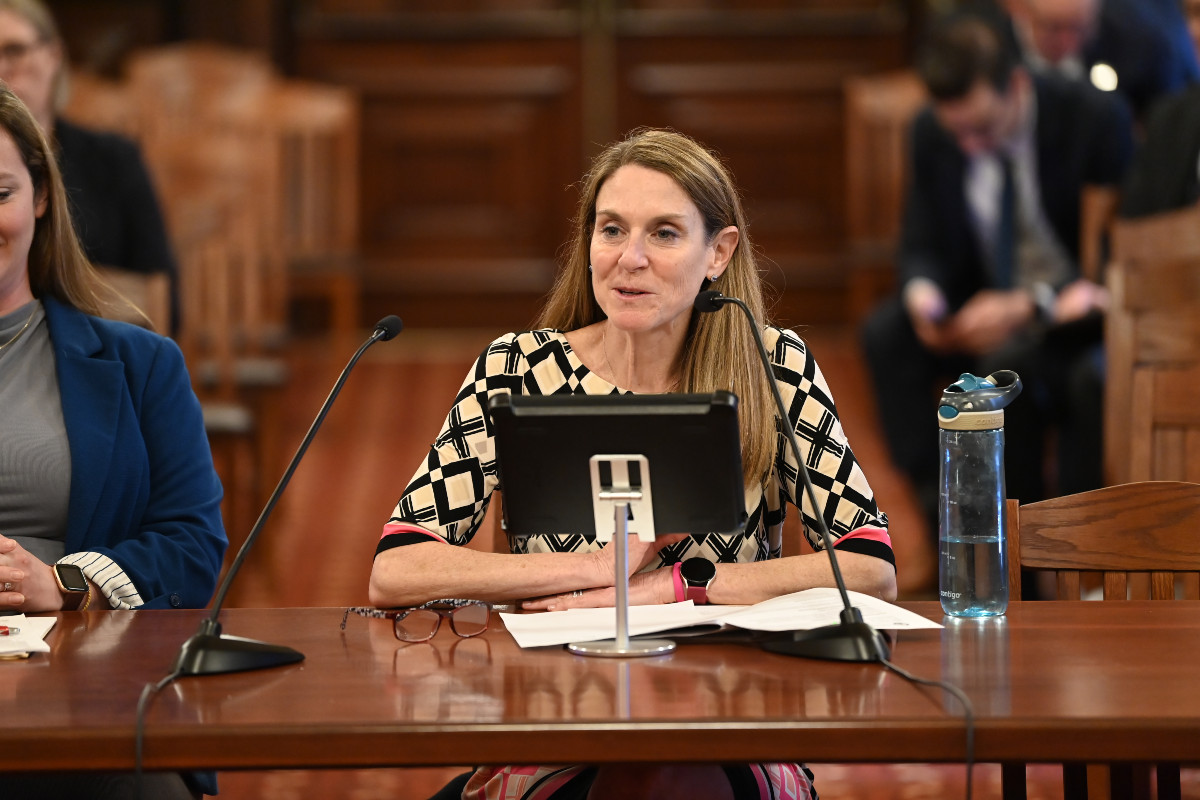- Details
- Category: Press Releases
 SPRINGFIELD – Addressing the detrimental, long-term environmental impact from disposable food packaging, State Senator Laura Fine presented legislation at a climate rally on Wednesday to phase out harmful polystyrene food containers.
SPRINGFIELD – Addressing the detrimental, long-term environmental impact from disposable food packaging, State Senator Laura Fine presented legislation at a climate rally on Wednesday to phase out harmful polystyrene food containers.
“Commonly, people will take home their restaurant leftovers or to-go orders in polystyrene foam food containers – completely unaware of their hazardous capabilities,” said Fine (D-Glenview). “Throwing away the container or using it to store food is often brief, but its impact can last a lifetime by compromising our health and our environment.”
In 2023, Fine passed the Degradable Plastic Act to ban state agencies and universities from purchasing or using polystyrene by Jan. 1, 2025. Building on these efforts, Senate Bill 1531 would prohibit the sale or distribution of polystyrene foam food containers across Illinois starting Jan. 1, 2030.
Read more: Fine joins advocates at rally for environmental justice and equity
- Details
- Category: Press Releases
 SPRINGFIELD – A measure led by State Senator Laura Fine that would provide coverage to vital emergency neonatal intensive care is one step closer to becoming law.
SPRINGFIELD – A measure led by State Senator Laura Fine that would provide coverage to vital emergency neonatal intensive care is one step closer to becoming law.
“Within the critical first hours of life, no parent should have to decide between ensuring their child receives life-saving care or avoiding hefty out-of-pocket costs,” said Fine (D-Glenview). “Parents want protect their children at every stage of life. This measure gives parents the ability to do that.”
To treat premature or critically ill newborns, neonatal care is often necessary and may require specialized treatments that might not be covered by a patient’s health insurance network. House Bill 2464 would address the importance of immediate care by requiring private insurers to cover emergency neonatal care, regardless of whether the provider is in or out of the patient’s network. This ensures families are not billed for greater out-of-pocket costs than they would have incurred with a participating provider.
Read more: Measure to provide neonatal intensive care coverage passes Senate, thanks to Fine
- Details
- Category: Press Releases
 SPRINGFIELD – In a continued effort to enhance environmental protections for carbon sequestration, State Senator Laura Fine is leading a measure to strengthen pipeline safety and protect pore space owners.
SPRINGFIELD – In a continued effort to enhance environmental protections for carbon sequestration, State Senator Laura Fine is leading a measure to strengthen pipeline safety and protect pore space owners.
“The following legislation continues work to establish sustainable solutions addressing the needs of our landowners and our environment,” said Fine (D-Glenview). “It is essential that as Illinois continues to lead the nation in the carbon capture and sequestration industry, we have the strongest protections in place.”
Expanding from Senator Fine’s measure last year that set environmental safety requirements at each stage of the carbon capture process, this legislation would enhance protections for property owners. The measure allows for recovery of attorney fees if a sequestration site landowner prevails in a lawsuit for damages to surface property. Additionally, nonconsenting pore space owners will be appropriately compensated.
- Details
- Category: Press Releases
 SPRINGFIELD – To broaden protections for employees speaking out against issues like harassment and discrimination, State Senator Laura Fine is leading a measure to clarify employees’ rights. The measure focuses on unlawful practices and provides protections from unfair labor practices.
SPRINGFIELD – To broaden protections for employees speaking out against issues like harassment and discrimination, State Senator Laura Fine is leading a measure to clarify employees’ rights. The measure focuses on unlawful practices and provides protections from unfair labor practices.
“As we work to provide more opportunities to Illinoisans, we must also expand efforts to promote safety and justice in the workforce,” said Fine (D-Glenview). “In the unfortunate case an employee faces unlawful employment practices, we want to ensure their voices are protected when reporting workplace harassment.”
Current law provides essential protections by barring employers from requiring their workers to maintain confidentiality agreements regarding employment discrimination. Building on these efforts, Fine’s measure would include crucial safeguards for victims of harassment in the workplace by prohibiting employers from imposing unlawful restrictions on their employees through workplace confidentiality agreements.
Read more: Fine works to enhance workplace transparency for victims of harassment, discrimination
More Articles …
Page 6 of 77







